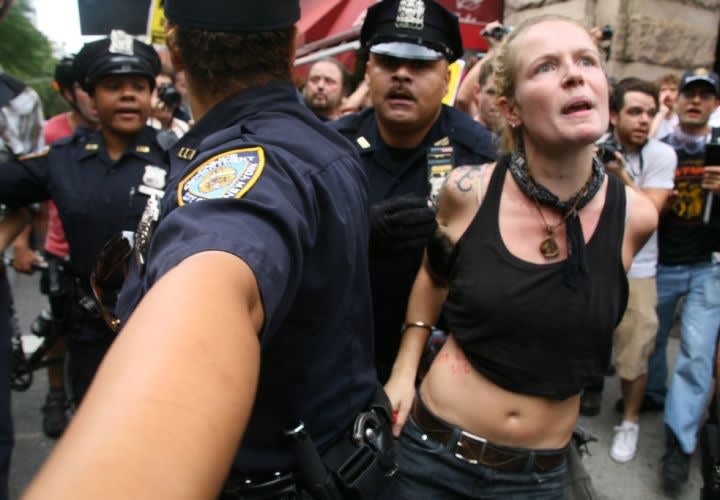This year, the sour economy hit law enforcement full force, causing havoc to law enforcement budgets and resulting in unprecedented cutbacks in pay, benefits, pensions, equipment, and training. Hiring freezes, layoffs, and even the elimination of entire agencies are occurred at an alarming rate.
Two popular social movements in 2011—flash mobs and occupiers—placed a great strain on cities and their LE agencies. Flash mobs were initially seen as harmless entertainment, while occupy was seen as justified protest.
It wasn't long before both movements were infiltrated and hijacked by troublemakers bent on violence. Street thugs turned many flash mobs into violent, rampaging, criminal mobs. Anarchists turning many occupy protests into violent confrontations and clashed with police.
This level of open lawlessness and violence is predictable, especially involving leaderless mobs. Police have a sworn duty to protect life and property, as well as maintain law and order.
When police are forced to deal with violent mobs, SWAT is certain to be an integral component of the police response.
The estimated cost for policing occupiers across the U.S. has been estimated at $13 million, the Associated Press reported, to pay overtime costs for around-the-clock policing. In Oakland alone, the cost has already approached $2 million, which the severely cash-strapped city of Oakland can ill afford. Oakland Police resources are thread thin, following two occupier riots, a homicide, and the dismantling of the City Hall encampment at least three times.
The Oakland Police Department's force, which has fallen to less than 700 officers, is stretched almost to the breaking point. The department has been repeatedly forced to request mutual-aid support from outside agencies. This comes at a high price—at least one LE agency bills the agency for mutual aid requests.
Occupiers have spread to University of California campuses in Berkeley, Davis, and Santa Cruz. Occupy protesters from Berkeley, Davis, Santa Cruz descended on a Bank of America branch in downtown San Francisco. They succeeded in shutting down the branch, as well as an entire high-rise office building.
After numerous requests to leave were refused, SFPD arrested 95 protesters. Rowdy occupy supporters threw bottles at police. Some protesters used megaphones to shout the spelling of officers' names, which they obtained from their name tags.
Occupy protests at the Berkeley and Davis campuses sparked violent police confrontations that resulted in controversy about the use of force by police.
At UC Berkeley, officers used batons during a volatile, physical confrontation between police and protesters.
At UC Davis, campus law enforcement faced criticism about the pepper spraying of protesters. The "pepper spray" video has gone viral. The university's chancellor publicly apologized and condemned the police for using pepper spray. The campus police chief, a lieutenant, and a third officer have been placed on paid suspension amid widespread calls for their firing.
If that wasn't enough, the hacker group Anonymous took up the cause, publishing the home address, e-mail, phone numbers of the lieutenant. This public exposure led to $200 of unordered pizzas being delivered to the lieutenant's home address. Only it was his former address.
America hasn't seen this level of mob lawlessness since the 1960s. Police are increasingly finding themselves stuck between the proverbial rock and hard place. Especially if they dare use any degree of force to uphold their sworn duty to maintain law and order.












